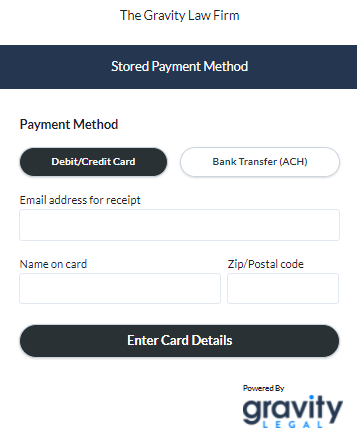Trust or IOLTA accounts evoke feelings of fear and frustration. Untangling trust accounting mistakes can devour precious hours, and the risk of running afoul of the rules of professional conduct is constant. Yet for all the bad, retainers (in particular evergreen retainers) are one of the top ways to improve your firm’s collection rate. With collection rates averaging around 85% according to the 2021 Clio Trends Report, collections is a major financial drain on the legal industry.
The Model
But there is a way to have your cake and eat it too. At Confido Legal, we’ve watched our clients add language like this to their engagement agreements:
Firm will provide Client with a detailed bill no later than the 5th of each month. Client will have five days from the date the bill is received to review the bill and contact Firm with questions. Thereafter Firm is authorized to charge the payment method entered by Client at the following link for the outstanding balance.*
At the beginning of every engagement, the firm securely stores either a credit/debit card or bank account for the client. The lawyers and staff don't have access to the full card or bank account number. Instead, they receive a secure token to charge that card or bank account in the future. When bills come due, the client has to do...well...nothing in order to pay the firm. Through this model, you can improve the chances of your invoice being the first bill your clients pay.
This model may not be as ironclad as taking an advance fee deposit or evergreen retainer, but it has three major benefits:
-
It avoids the hassle and risk associated with trust accounting
-
It can make your services more accessible, since clients don’t have to pay a large upfront retainer or advance fee deposit
-
It improves the client experience. In an age of online commerce, your clients are used to storing their payment credentials where they shop. Could you imagine having to enter your credit card number every time you wanted to buy something on Amazon or use your favorite ridesharing app?
The Ethics
Before you rush out and change your engagement agreement, be sure to check your rules of professional conduct and ethics opinions. Some states have rules and opinions that directly relate to this topic. For example, a New York opinion, states,
A lawyer’s retainer agreement may provide that (i) the client secures payment of the lawyer’s fees by credit card, and (ii) the lawyer will bill the client’s credit card the amount of any legal fees, costs or disbursements that the client has failed to pay within 20 days from the date of the lawyer’s bill for such amount, as long as the credit card charge complies with the requirements previously set forth in our opinions, including that the client is expressly informed of the right to dispute any invoice of the lawyer (and to request fee arbitration) before the lawyer charges such amount and that the lawyer does not charge the client’s credit card for any disputed portion of the lawyer’s bill.
Once you have checked the rules and updated your engagement agreement, it’s time to implement. Payment method storage is becoming more common, and there are systems out there that will securely enable this billing model. For example, Confido Legal was designed with this law firm billing model in mind. The platform allows firms to add links (like the one shown below) to engagement agreements or onboarding workflows to capture payment information without running a charge. The firm never handles card or bank account numbers, but the attorneys and staff can charge the clients when the monthly deadline arrives.
For more information on how other firms have implemented this model or to see how it can be implemented at your firm with Confido Legal, grab a time to speak with us at the demo link below.
*This language is provided as a sample ONLY. As with all matters in your law practice please consult the applicable laws, rules, and best practices in your jurisdiction to ensure you comply with the relevant professional obligations.


